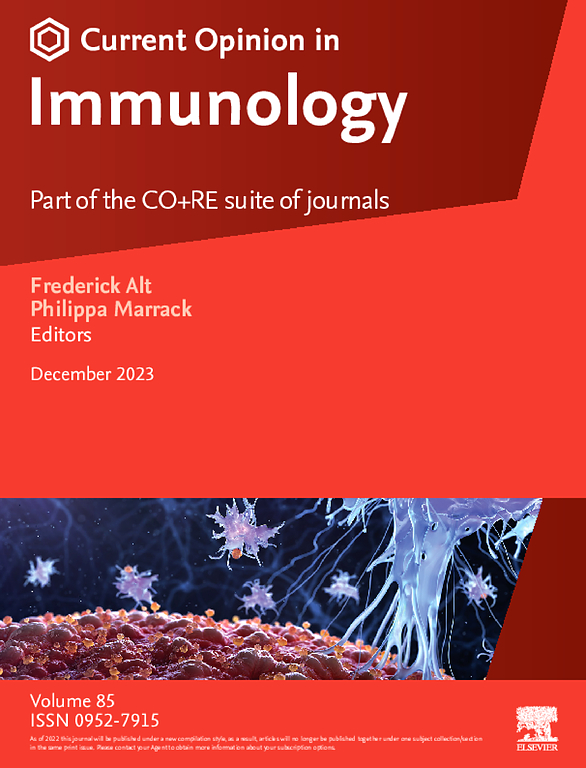抗磷脂综合征补体,何时达到目标?
IF 5.8
2区 医学
Q1 IMMUNOLOGY
引用次数: 0
摘要
抗磷脂综合征(APS)是一种获得性自身免疫性血栓病。补体系统与凝血级联具有共同的作用体,目前已确定补体系统通过不同的机制参与APS的病理生理。在APS中,补体激活评估不包括在常规护理中,尽管大量研究表明激活片段(C4d、C3d和C5b9)在血清和血细胞表面的系统水平上存在,而且在受影响的动脉壁、肾脏、胎盘或心脏瓣膜中也存在。APS患者采用维生素K拮抗剂长期抗凝治疗,预防血栓复发。一些病例报告描述了使用抗c5抗体治疗特殊形式的APS(复发性血栓形成,灾难性APS),但不足以得出其疗效的结论。仍然需要确定相关的生物标志物,以帮助确定各种最近开发的补体靶向分子在APS治疗方法中的作用。本文章由计算机程序翻译,如有差异,请以英文原文为准。
Complement in antiphospholipid syndrome, time to target?
Antiphospholipid syndrome (APS) is an acquired autoimmune thrombophilia. Complement system, which shares common actors with the coagulation cascade, is nowadays well established to be implicated in APS pathophysiology by different mechanisms. In APS, complement activation assessment is not included in the routine care despite numerous studies showing the presence of activation fragments (C4d, C3d, and C5b9) at a systemic level in sera and blood cells’ surface but also in affected arterial walls, kidneys, placentas, or heart valves. APS patients are treated to prevent thrombosis recurrence by long-term anticoagulation with vitamin K antagonist. Several case reports described the use of an anti-C5 antibody to treat particular forms of APS (recurrent thrombosis, catastrophic APS) but are not sufficient to conclude on its efficacy. There is still a need to identify relevant biomarkers to help establish the role of the various recently developed complement-targeting molecules in the therapeutic approach to APS.
求助全文
通过发布文献求助,成功后即可免费获取论文全文。
去求助
来源期刊
CiteScore
13.30
自引率
1.40%
发文量
94
审稿时长
67 days
期刊介绍:
Current Opinion in Immunology aims to stimulate scientifically grounded, interdisciplinary, multi-scale debate and exchange of ideas. It contains polished, concise and timely reviews and opinions, with particular emphasis on those articles published in the past two years. In addition to describing recent trends, the authors are encouraged to give their subjective opinion of the topics discussed.
In Current Opinion in Immunology we help the reader by providing in a systematic manner: 1. The views of experts on current advances in their field in a clear and readable form. 2. Evaluations of the most interesting papers, annotated by experts, from the great wealth of original publications.
Current Opinion in Immunology will serve as an invaluable source of information for researchers, lecturers, teachers, professionals, policy makers and students.
Current Opinion in Immunology builds on Elsevier''s reputation for excellence in scientific publishing and long-standing commitment to communicating reproducible biomedical research targeted at improving human health. It is a companion to the new Gold Open Access journal Current Research in Immunology and is part of the Current Opinion and Research(CO+RE) suite of journals. All CO+RE journals leverage the Current Opinion legacy-of editorial excellence, high-impact, and global reach-to ensure they are a widely read resource that is integral to scientists'' workflow.

 求助内容:
求助内容: 应助结果提醒方式:
应助结果提醒方式:


